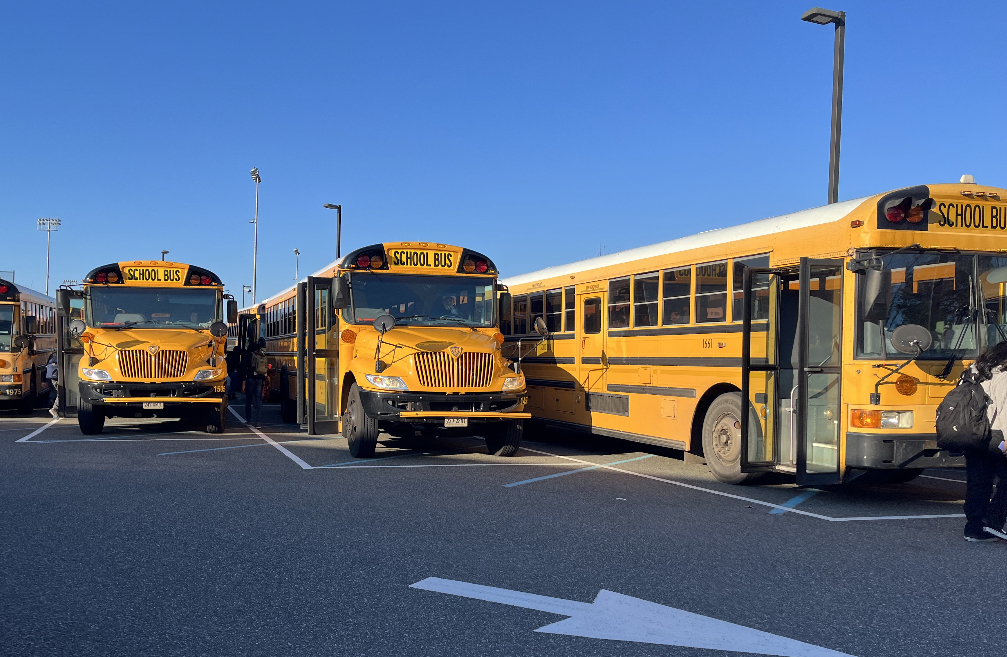On Sunday, Jan. 21, temperatures dropped to a startling negative six degrees Fahrenheit, causing layers of ice to reform on the roads and highways leading to Jefferson. This wasn’t cause for concern, as students were still expected to make the trek to school, but what was evidently not considered were the several school buses left outside throughout the night, still expected to pick up students the next morning.
While most of the buses continued to perform well enough to take students to school, one bus stalled and broke down on the highway: Loudoun bus 2199.
This begs the question, at what point does school become a higher priority than student safety? For Loudoun County Public Schools (LCPS), that point was Monday, Jan. 22, after the bus stalled and broke down over four times within an hour, one even being on the side of the highway. The bus finally pulled into a parking lot and waited for another to come to its rescue.
“The bus broke, and we sat there for a few minutes, but then it ended up starting again. After another ten minutes the bus broke down again, but this time it was on the side of the highway. We were going really slow and it was scary at one point,” sophomore Avani Gopalakrishna said. “It broke down several times, about ten to fifteen minutes in between each time, and the last time it broke we had to pull into this parking lot in Reston and wait for another bus to come help us out. We ended up getting to school forty minutes later than we usually do.”
What Gopalakrishna and the other students on bus 2199 experienced was likely a process involving the gelling of the diesel used to fuel the bus. This occurs when temperatures fall below 10-15 degrees Fahrenheit, which the bus was constantly exposed to for several hours during the night and in the morning when picking up the students. LCPS’s response was to temporarily replace the bus, instead of attacking the core issue itself.
“They gave us a new bus. It’s way smaller though, and very cramped. I have no idea what they did with our old bus, but I hope they fix it because this is really uncomfortable,” Gopalakrishna continues. The original bus was eventually returned two days after the incident, with no evidence that the breakdown had ever occurred in the first place.
Although LCPS schools were closed due to a teacher work day, no on-campus activities were canceled, and buses were still sent out to transport Jefferson students. So if temperatures were below 10 degrees Fahrenheit until 8 a.m. that day, then why would LCPS not cancel all activities in general? So far, we’ve only used 4 snow days—a small percentage of the 15 total that are allotted. They have more than enough snow days left to use.
A possibly frightening answer might be midterm exams. The day the bus broke down was the first of a grueling week in which Jefferson and other students participated in their midterm and final exams for their courses this past semester. This raises the question of how far is too far. Is student safety really less important than taking a reschedulable test?
If LCPS principals are so intent on claiming that students are more than their GPA, then it’s time to show it. Snow days need to be more commonly used, especially because we only ever use three to four of them each year.
Instead of being so focused on making sure students are at school to take a few tests, maybe we should be focusing more on how we can use our allotted snow days to keep students safe.
Student safety should be the primary focus of schools, and allowing buses to drive students back and forth after being exposed to below-freezing temperatures is irresponsible, and frankly shocking.

